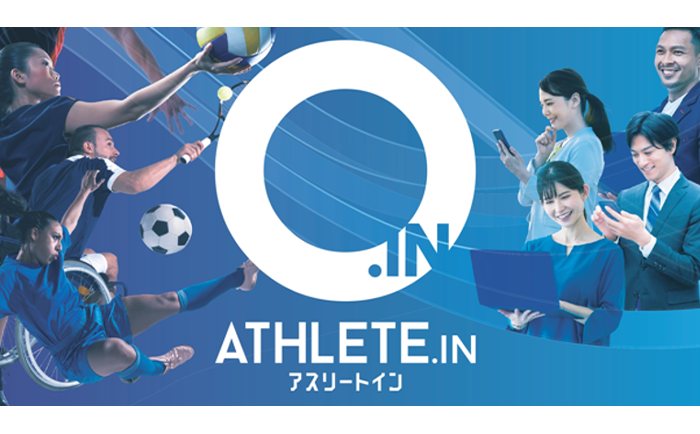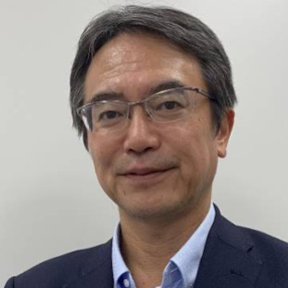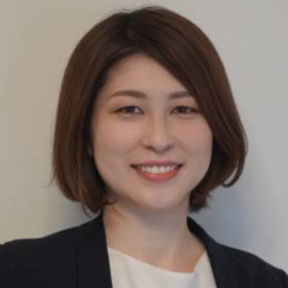2024.02.15

Helping athletes forge new careers and connecting them to employers

Mitsubishi Research Institute, Inc. (MRI) launched the ATHLETE.IN organization for athletes
and the Athlete Support Lab for employers in March 2023 as part of its Athlete FLAP Support
(AFS) Project to help both active and retired sportspersons forge future careers. What lead
MRI to start this initiative?
The story begins back in 2014, the year after Tokyo was selected to host the 2020 Olympic
and Paralympic Games, when MRI founded the Council for the Co-Creation of an Olympic and
Paralympic Legacy. The aim was to secure a lasting legacy for the Tokyo 2020 Games,
including by ensuring that Games venues would be used effectively going forward. The Council
has a membership base of nearly 200 industry, academic, and governmental
organizations.
Meanwhile, Takehito Kimura, who leads the AFS Project at MRI’s Human Capital and Career
Division, had long been troubled by the fact that retired Japanese athletes, even those who
had competed at the world’s highest level, had difficulties finding suitable jobs where they
could put their skills and experience to work. He made a proposal to the Council that as
well as tangible legacies, the Games should also leave intangible legacies, such as helping
retired Olympians thrive after they hang up their boots as well as providing the next
generation of athletes with opportunities for development.
“Based on its research, MRI forecasts a supply-demand mismatch in the labor market of about
two million people in the near future,” says Mr. Kimura. “Progress in robotics and
widespread use of AI will leave a surplus of labor for routine work in fields that see a
shortage of workers right now. On the other hand, there will be a shortage of workers who
know how to use robots and AI to make innovations. So we’re left with a question: how can we
increase the number of people who can take an analytical approach to non-routine tasks that
are constantly changing?”
He continues: “There are about seven million people in Japan right now who are not working
as regular company employees. This includes people with unique careers that put them outside
the standard corporate employment model. And athletes are a high-profile example. Against
this background, and to find an answer to the question posed earlier, MRI launched the
Athlete FLAP Support Project to support people who have the potential to succeed in business
but do not have sufficient opportunities at existing corporate organizations to demonstrate
this potential. We aim to help them take on the challenge of crafting careers where future
growth is possible.”
The Athlete FLAP Support Project is based on the FLAP Cycle proposed by MRI for building
autonomy in careers.
・Find : Find out what attributes and strengths you have, what jobs you might have an
aptitude for, and the outlook for such jobs
・Learn : Improve your existing skills and learn new skills to get yourself on your desired
trajectory
・Act : Take actions in line with your desired trajectory
・Perform: Demonstrate your abilities in a new setting
“Many athletes already cycle through Find, Learn and Act in their athletic careers to
analyze their strengths and achieve their goals,” notes Mr. Kimura. “So, by participating in
the project and assisting athletes with the FLAP process, people with a business background
will also be able to learn something from them. This is the kind of synergy I expect to
see.”
Connecting athletes to companies and local communities, using AI to help them rediscover their own strengths
In the Athlete FLAP Support Project, athletes and others engaged in sports are offered free
membership in an organization named “ATHLETE.IN.” Through this organization, athletes can
network with each other and with representatives of companies and local governments both
online and offline. A service called “AI Mentor” is also provided to help athletes
rediscover their strengths using AI and build motivation to embrace challenges. The service
is thus intended to support athletes in shifting their mindset for greater career
autonomy.
Companies and other organizations, meanwhile, are invited to join an organization named
“Athlete Support Lab,” paying an annual membership fee of 132,000 yen (including tax). The
organization provides a matching service to help its members employ retired athletes and
find active or retired athletes to participate in organizational initiatives like training,
health promotion, diversity, and new business creation. Through these two membership
organizations, the project provides both athletes and companies with a range of mutually
beneficial opportunities. According to Shoko Okuno, who also manages the AFS Project at MRI,
“Around half of the athletes registered with ATHLETE.IN are still active and half have
already retired.”
“We’ve found that many athletes lack a chance to interact with other athletes, because they
are all focused on their own sports,” Ms. Okuno explains. “They therefore have few people to
turn to for advice about a career switch. They are usually limited to those who are bit
ahead of them in terms of their athletic career and those who they also happen to be close
to. I hope that the opportunities for networking with other athletes through ATHLETE.IN will
help them in thinking about their own careers.”
She goes on: “In order to continue to thrive by drawing on their unique talents, athletes
need to think about their aptitude for different jobs and work on some short-term projects
while they are still competing. This should be done with an eye to developing a future
career. And they should not postpone planning for this until after they have decided to
retire from sports. We need to facilitate a change in the greater mindset among athletes.
Companies, on the other hand, are working through trial and error to find ways to help
athletes succeed in their workplaces.”
Helping athletes try new things while still competing to develop a dual and future careers
Proposals made to athletes by members of the Athlete Support Lab include contributing to
regional revitalization by becoming a manager of a hotel, participating in a sports event
held by companies and local governments as a guest athlete, and serving as a corporate guest
speaker on diversity as a para-athlete. As a real-life example of a successful matchup, the
Osaka Chamber of Commerce and Industry (OCCI) has been collaborating with athletes to
implement an initiative to promote the sports industry. Under the initiative, the OCCI is
creating new businesses in reference to problems faced by athletes and invites athletes to
serve as advisors in a university-level professional development program, which targets
careers in sports and wellness.
Ms. Okuno says: “Participants have said that the project helped them to build ties and
broaden their potential. Lots of athletes really want to make use of their sporting
expertise to help educate youth, and the program targeting university students was one they
particularly liked. We have also received positive feedback from people in the business
community, including those who said, ‘It inspired us to listen to opinions expressed from
perspectives that differ from our own.’”
Regarding the matching service, Ms. Okuno hopes that companies will not compete but rather
collaborate to provide athletes with more choices. The various ways in which athletes can
thrive in new fields will be assessed through the project using data and case studies. The
goal will be to promote employer matching and to foster unexpected collaborations among
athletes, companies, and local communities.
“Career development by athletes, particularly by female athletes, is an important theme for
us,” concludes Mr. Kimura. “We are working to understand what kind of career support female
athletes need during the period before and after childbirth and while they are raising a
family. I would encourage athletes to consider developing a dual career in addition to a
second career. I also hope that by seeing athletes shine through their career autonomy, the
next generation of children, our future leaders, will be encouraged to embrace challenges in
their favored fields.”
“I hope athletes will become interested in Mitsubishi Group companies,” adds Ms. Okuno, “and
I hope that we can work with athletes to create more opportunities that are beneficial both
for them and us. I will strive to get the entire Mitsubishi Group behind the idea of
supporting athletes.”
MRI intends to expand the scope of the project to eventually include those with unique
careers that put them outside the standard corporate employment model.
It might come as a surprise to hear that MRI is working to support athletes but
its efforts are in service of its greater goals: to create a society where anyone can take
on the challenge of making their dream come true and start over when experiencing a setback
or after retiring as an athlete. MRI also aims for a society where everyone has a variety of
career options and is not restricted by conventional limitations, such the current focus on
the educational background of new graduates.
INTERVIEWEES

TAKEHITO KIMURA
Human Capital and Career Division

SHOKO OKUNO
Human Capital and Career Division
Mitsubishi Research Institute, Inc.
10-3, Nagatacho 2-chome, Chiyoda-ku, Tokyo
The Mitsubishi Research Institute is one of Japan’s foremost think tanks. For the
last 50 years, it has provided the public and private sectors with research and
consulting services in fields spanning the environment, energy, healthcare, and
digital transformation. This is accompanied by policy recommendations and the
real-world application of solutions. Mitsubishi Research Institute will continue to
envision the future, resolve societal issues, and lead change to build a sustainable
and prosperous world. For more information, please visit:
